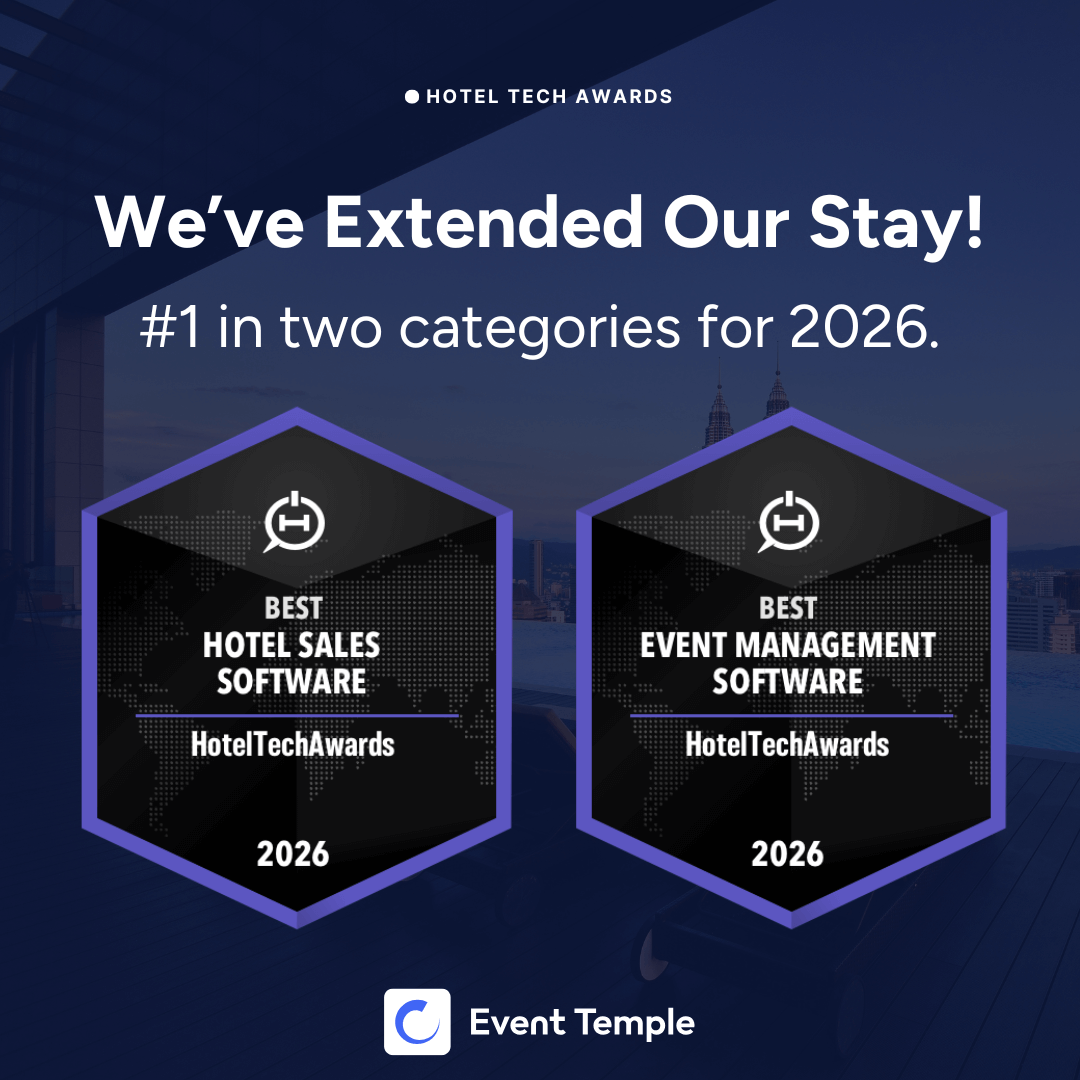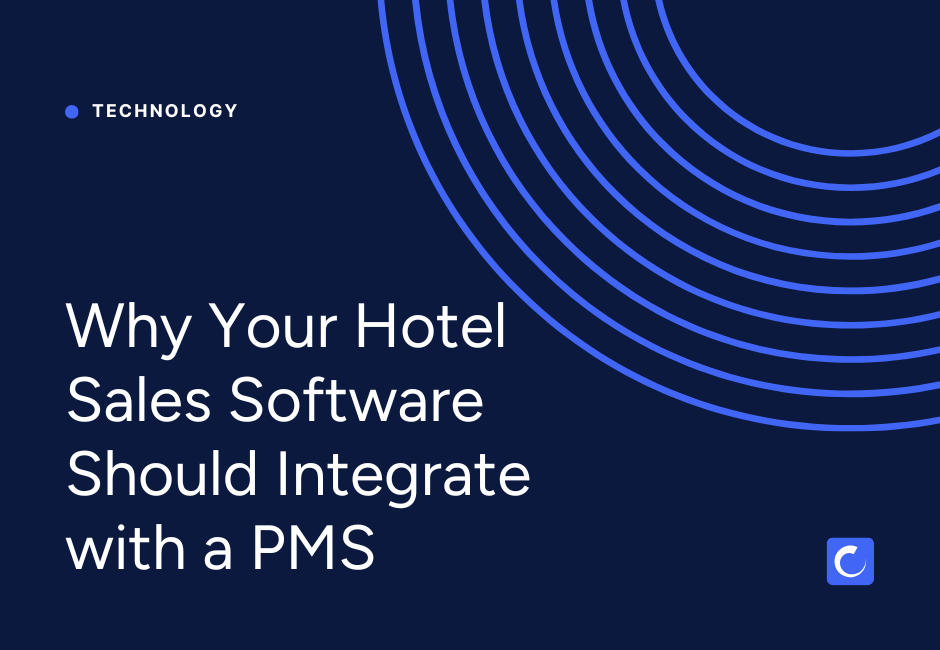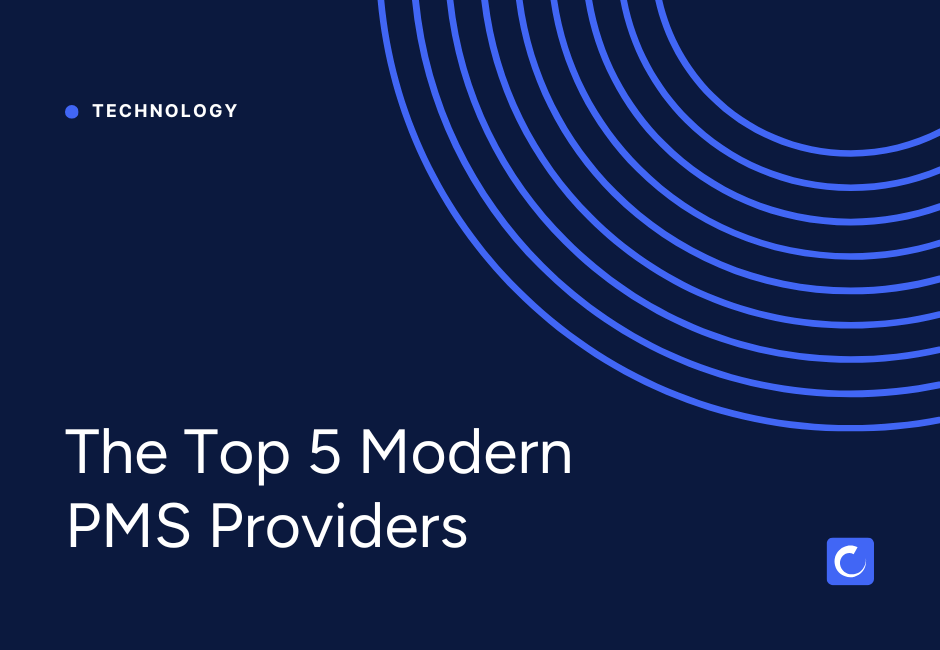
Summer has officially arrived across the Northern Hemisphere, bringing sunshine, travel, and, for many properties, a sharp uptick in demand.
And while this will differ depending on where you’re situated, for many properties with event space, this often means a surge of group inquiries, event space bookings (often last minute!), and back-to-back site tours — all squeezed into a few fast-moving months.
It’s a golden opportunity to drive revenue, but it can also strain your team and systems if you're not prepared. The key to success? Building efficiency into your sales process so you can handle the volume, stay organized, and close more business (without burning out).
The good news is that with the right strategy, processes, and tools, your hotel sales team can turn the seasonal surge into a competitive advantage and you can keep your cool while capitalizing on some of the hottest selling months of the year.
Here’s how to build efficiency into your hotel sales processes and ride the waves of seasonality to make the most out of peak season.
1. Clean and Prioritize Your Sales Pipeline
The first step to finding efficiency is clarity. Help your team cut through the chaos by establishing order and clear priorities.
- Clear the clutter: Archive or close out leads that are cold, non-responsive, or past event dates.
- Segment incoming leads based on factors like budget, size, date flexibility, and alignment with your target event types.
- Score leads using a basic system (categorize or label as hot/warm/cold) to help your team focus efforts where they’re most likely to convert.
A clean, well-prioritized pipeline helps your team avoid wasting time on dead-end opportunities and shortens response time for high-priority leads.
2. Automate Repetitive Tasks (Without Losing Your Personal Touch)
Busy seasons are not the time to rely on manual workflows. Every minute matters, so automate what you can — but keep it human where it counts most.
- Use automated email responses for inbound inquiries confirming receipt and next steps.
- Build reusable templates for proposals, contracts, BEOs, and follow-ups.
- Set task reminders for check-ins, deadlines, or site tours so nothing is forgotten.
- Create nurture sequences for leads that aren’t ready to book today but may be planning fall or winter events.
Automation doesn’t have to feel robotic. Personalize templates with merge fields and small notes to keep communications warm, tailored, and relevant.
3. Centralize All Sales Activities in One CRM System
One of the biggest killers of productivity? Scattered systems.
When your team is juggling Google Sheets, email inboxes, Teams messages, and physical binders or folders, things can fall through the cracks — fast.
- Use a centralized hotel sales CRM system that shows real-time deal status, communication history, and task assignments.
- Make sure everyone (from sales to catering to ops) has access to the same lead and event info.
- Eliminate redundant data entry by ensuring integration between your CRM and other tools (calendar, email, intake forms, etc.).
Centralization isn’t just about convenience — it enables visibility. Managers can spot bottlenecks, reassign work, and ensure nothing (and no one) is overlooked.
4. Use Your Data to Guide Smart, Fast Decisions
In peak season, there’s no time for guesswork. Data helps you move fast and confidently.
- Monitor lead sources and channel performance: Where are your most profitable inquiries coming from? Focus on those with the most impact.
- Track conversion rates at each stage of the sales journey to identify opportunities for improvement: Are site tours converting? Are proposals stalling?
- Use reporting dashboards to identify trends and pivot in real time (not after the season ends).
If you’re using a hospitality CRM platform like Event Temple, you can instantly see which team members are overloaded, which promotions are performing, and which stages of your sales cycle need attention.
5. Align Sales With Marketing for a Stronger Front
Sales and marketing shouldn’t operate in silos — especially not during your busiest season.
- Share insights about what messaging and offers are converting to help marketing teams double down on effective campaigns.
- Align on lead handoff processes so qualified leads get followed up on fast.
- Collaborate on time-sensitive campaigns (e.g., summer special promotions, early bird promos for fall bookings, weekday discount offers) that can drive urgency.
Host quick weekly syncs between sales and marketing — 15 minutes is all it takes to stay aligned and identify new opportunities.
6. Tighten Coordination With Operations & Front Desk Teams
Your job doesn’t stop once a lead signs — and neither does theirs. To deliver seamless experiences for group guests from inquiry through execution:
- Share final headcounts, timing, and VIP notes with the front desk or concierge team.
- Use internal notes or CRM fields to flag special setup requests, catering needs, or event schedules.
- Schedule internal prep meetings or walkthroughs for large events to reduce day-of confusion.
Utilize software with an event diary or consider a shared “event overview” calendar that everyone on property can access in one place.
7. Prevent Burnout With Smart Workload Management
Efficiency isn’t just about speed — it’s about sustainability. Yes, you want to crush your sales goals, but nobody wants to crush their colleagues or team morale along the way.
- Avoid overloading your reps and spread the workload evenly. Batch similar tasks (site tour scheduling, proposal reviews) when possible so reps can focus without constant switching.
- Set team expectations around working hours and encourage breaks — especially when adrenaline runs high. It can help to take turns assigning someone “on-call” for off hours or any emergencies that might come up to help distribute the burden.
Lead by example. A calm, focused leader (or colleague) empowers their team to operate at a higher level — and recover faster after the rush.
8. Prepare for the Post-Summer Slowdown
Peak season is important, but growth opportunities don't abruptly end with the final summer wedding. What you do now lays the groundwork for Q4 success.
- Set up nurture workflows for leads that didn’t close (but may still be planning events for the holidays or early next year).
- Analyze performance and debrief while it’s fresh: What worked? What didn’t? Where were the bottlenecks?
- Use your insights to update your SOPs and improve processes before the next rush hits.
Don’t let your new summer systems go to waste — turn seasonal efficiencies into year-round best practices.
Wrapping Up: Efficiency Is Your Summer Superpower
Busy season can feel make-or-break — but it doesn’t have to mean stress and scramble. With smarter prioritization, automation, team alignment, and data-driven decisions, your hotel sales team can thrive during periods of peak demand.
And if your current systems can’t keep up? It might be time to upgrade the tools that support your team’s success. If you’d like to see how Event Temple helps hotel sales teams stay organized and close more business (without breaking a sweat), schedule a walkthrough today — we’re here to help.



